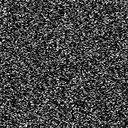Ipomoea aquatica extract shows protective action against thioacetamide-induced hepatotoxicity.
الكلمات الدالة
نبذة مختصرة
In the Indian system of traditional medicine (Ayurveda) it is recommended to consume Ipomoea aquatica to mitigate disorders like jaundice. In this study, the protective effects of ethanol extract of I. aquatica against liver damage were evaluated in thioacetamide (TAA)-induced chronic hepatotoxicity in rats. There was no sign of toxicity in the acute toxicity study, in which Sprague-Dawley (SD) rats were orally fed with I. aquatica (250 and 500 mg/kg) for two months along with administration of TAA (i.p injection 200 mg/kg three times a week for two months). The results showed that the treatment of I. aquatica significantly lowered the TAA-induced serum levels of hepatic enzyme markers (ALP, ALT, AST, protein, albumin, bilirubin and prothrombin time). The hepatic content of activities and expressions SOD and CAT that were reduced by TAA were brought back to control levels by the plant extract supplement. Meanwhile, the rise in MDA level in the TAA receiving groups also were significantly reduced by I. aquatica treatment. Histopathology of hepatic tissues by H&E and Masson trichrome stains displayed that I. aquatica has reduced the incidence of liver lesions, including hepatic cells cloudy swelling, infiltration, hepatic necrosis, and fibrous connective tissue proliferation induced by TAA in rats. Therefore, the results of this study show that the protective effect of I. aquatica in TAA-induced liver damage might be contributed to its modulation on detoxification enzymes and its antioxidant and free radical scavenger effects. Moreover, it confirms a scientific basis for the traditional use of I. aquatica for the treatment of liver disorders.



